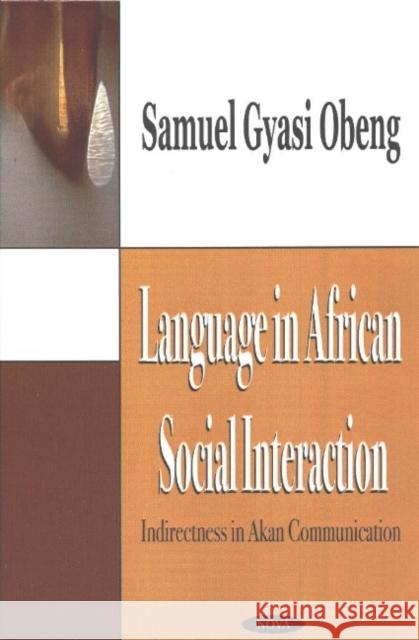Language in African Social Interaction: Indirectness in Akan Communication » książka
Language in African Social Interaction: Indirectness in Akan Communication
ISBN-13: 9781590337837 / Angielski / Miękka / 2003 / 183 str.
In African societies, much as plain or direct language is cherished and highly appreciated because of the pragmatic clarity it offers, implicitness, indirectness, vagueness, prolixity, ambiguity and even avoidance are even more cherished and preferred especially when the subject matter of what is being communicated is difficult or face-threatening. Verbal indirection, the communicational strategy in which interactants abstain from directness in order to avoid crises or in order to communicate 'difficulty', and thus make their utterances consistent with face and politeness, is pervasive in African (Akan) social interaction. This groundbreaking book explores various linguistic and discursive devices speakers employ when engaged in indirectness. Among the linguistic and discursive strategies discussed are the use of: pronoun mismatching, nouns (especially proverbial names and other names with indirect meanings), evasions, hedges and various forms of pre sequences (which help to eliminate perceived obstacles to making such speech acts as announcements, requests, or invitations), acknowledgement of imposition, proverbs, metaphors, innuendoes, euphemisms, circumlocution, riddles, tales,











